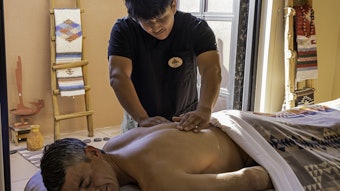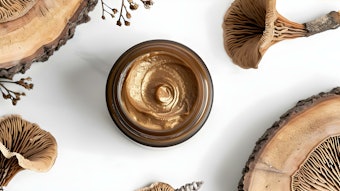
Many of today's spa clients are both sleep-deprived and stressed out. After they come to you for a stress-relieving treatment, consider providing some tips, such as the ones offered below, about how to focus on getting enough sleep for enhanced well-being.
What’s keeping Americans up at night? According to a recent poll by Zeo Inc., purveyors of a personal sleep coach system, 42% of Americans report job-related stress is keeping them from a good night’s sleep. A close second, 39% of Americans reported nighttime noises, such as a snoring partner, as their key sleep-stealer; rounding out the top three, 32% blamed caffeine.
“The key to getting a better night’s sleep is first educating yourself about your own personal sleep habits and then recognizing what daytime activities are robbing you of a good night’s sleep. By doing this, it can truly enable you to take control of your own sleep.”
In the “2009 Sleep in America Poll,” the National Sleep Foundation reported that, as a nation, the United States appears to be becoming more and more sleep-deprived, with Americans averaging just 6.7 hours of sleep during a weekday; far below the National Institutes of Health recommendation of seven to nine hours. More than half (55%) of Americans surveyed by Zeo confirmed they were not getting enough sleep. Today, focus is shifting beyond aiming to get enough quantity of sleep, to achieving quality sleep.
While getting a full seven to nine hours of sleep continues to be important, numerous studies are beginning to reveal the true benefits of sleep quality. As one sleeps, the body passes through different states and stages of sleep. These patterns are typically predictable, starting with light, to deep sleep, and on to REM sleep throughout the night. These phases, when experienced without disruptions, play a crucial role in achieving quality sleep. Science has shown that REM and deep sleep help repair the body through muscle rejuvenation and growth, building up immune defenses and memory formation.
Consider providing the following tips to help your clients determine sleep-stealing culprits:
- Take a few minutes to recognize which daytime activities may be affecting your nighttime sleep. Start a daytime sleep journal, if needed.
- Examine your bedroom environment and clear any unnecessary, nonsleep related items from the room. With each change, see if you feel any difference in your sleep.
- Take a look at your bedtime routine. Is it relaxing and aimed to winding down to sleep?
- Do you know your personal sleep patterns each night?
- How long did it take you to fall asleep last night?
- How many times did you wake up?
- How long were you awake?










